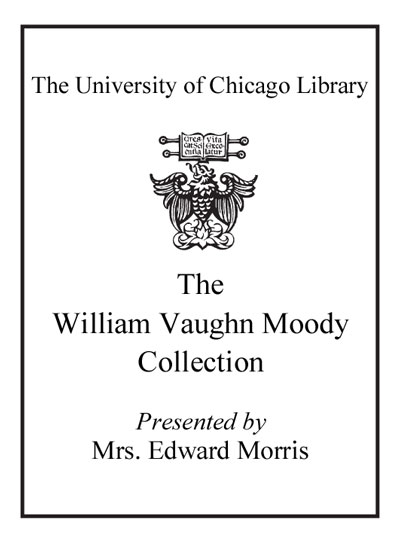Review by Booklist Review
Two essay collections examine the multifarious nature of memory and the current passion for the memoir. Memory is a complex subject open to infinite interpretation, as Baxter discovered in his role as editor of the third volume in the lively Graywolf Forum series, The Business of Memory. The title alludes to both the remembrances of one person's life and the electronic memory of information technologies, but most of the contributors address memory's more personal aspects as well as memory's opposite, forgetting. Lydia Davis muses over whether the dead live on in memories. Alvin Greenberg cannot remember his first kiss. Family memories occupy several writers, including Richard Bausch and Sylvia Watanabe, and memory as the impetus for reading and writing intrigues others, including the acclaimed memoirist Patricia Hampl. Hampl's contribution to Baxter's forum considers the conflict between expression and privacy, the writer's commitment to commemorating life and her subjects' objections to being treated as "material." This piece appears last in Hampl's remarkable volume of essays about autobiography, a subject that she uses as a vehicle for considering how writing about one's own life reveals a larger world. Memoirs, Hampl believes, are akin to lyric poetry in their sensuous involvement with detail and use of an intimate first-person voice. It's not the story that matters in a memoir, she suggests, but the evocation of the workings of a mind. Hampl develops this insight in original interpretations of how the self, the fruit of memory, is defined in the work of Walt Whitman, Sylvia Plath, Anne Frank, and Czeslaw Milosz. Lucid and questing, Hampl ponders the spirituality inherent in the work of poets and memoirists, impassioned witnesses to the inner life. --Donna Seaman
From Booklist, Copyright (c) American Library Association. Used with permission.
Review by Library Journal Review
Several of the writers featured in these volumes make reference to the problem of memoirs in contemporary culture: their proliferation, the troubled skepticism about their value and meaning, and the disdain for their perceived narcissism. In different ways, these books explore those issues and embody the best that memoir can beÄintelligent and perceptive reflection that looks both inward and outward. Edited by Baxter, a novelist and critic, the third volume in the provocative "Graywolf Forum" series offers timely insights into the place of memory and memoir in contemporary society. In his introduction, Baxter identifies the unifying theme of the essays as a dual anxiety about the public and the private and what he calls "the effect of memory's peculiar privacy." These are self-conscious and beautifully written essays that deftly explore the act of memoir-making and the art of storytelling. Ranging from tales of trauma and loss to quotidian and even banal events, they probe the tension between memory and forgetting and the mysteries of how we do each. In I Could Tell You Stories, award-winning writer Hampl collects 11 essays, eight previously published (and one of which appears in Baxter's volume). Here the pivotal theme is the fusion of the reader and writer at the heart of the writer's "communion of the word." In polished narratives rich with evocative detail and astute observations on reading and writing about other authorsÄincluding Walt Whitman, St. Augustine, Franz Kafka, Sylvia Plath, and Czeslaw MiloszÄHampl achieves what she praises Whitman for, placing herself "between the personal and the impersonal." In so doing, she offers fresh perspectives on memory, writing, and literature. Both books are recommended for academic and public libraries.ÄJulia Burch, Cambridge, MA (c) Copyright 2010. Library Journals LLC, a wholly owned subsidiary of Media Source, Inc. No redistribution permitted.
(c) Copyright Library Journals LLC, a wholly owned subsidiary of Media Source, Inc. No redistribution permitted.
Review by Kirkus Book Review
Those tired of the reductive view of autobiography as voyeur's toy will welcome these investigations on the form's redemptive powers and link to history. In her collection, memoirist Hampl (English/Univ. of Minnesota; Virgin Time, 1992, etc.) offers as subjects a range of autobiographical writers, including Walt Whitman, Sylvia Plath, Czeslaw Milosz, Edith Stein, Anne Frank, and St. Augustine. She links them through her introductory essays, in which she plumbs the importance of memoir, which provides readers with 'the deeply satisfying sense of being spoken to privately' and offers writers the chance 'to find not only a self but a world,' a world they discover by telling 'their mind, not their story.' In discussing her subjects' minds, Hampl reveals her own: She is a poet, a pilgrim, someone old enough to have loved a Vietnam draft resister and have lost friends, whose memory she appropriates for her writing. Like many essayists, she is more memorable for her epigrammatic observations than her arguments. Readers need not accept Hampl's analysis of Sylvia Plath's poetry or of her own life to allow her belief in 'the primacy of the first-person voice in American imaginative writing.' Disagree with her easy contention that 'Religion is typically too constrained by the systems and institutions that claim it,' but accept that 'To write one's life is to live it twice.' For, as she says of St. Augustine's Confessions, what matters is the mind at work: 'Consciousness, not experience, is the galvanizing core of a personal story.' Dogged and various in her explorations on memoir, she gives weight to her belief in the intellectual need in our culture to become 'sophisticated about the function of memory.'
Copyright (c) Kirkus Reviews, used with permission.
Review by Booklist Review
Review by Library Journal Review
Review by Kirkus Book Review

